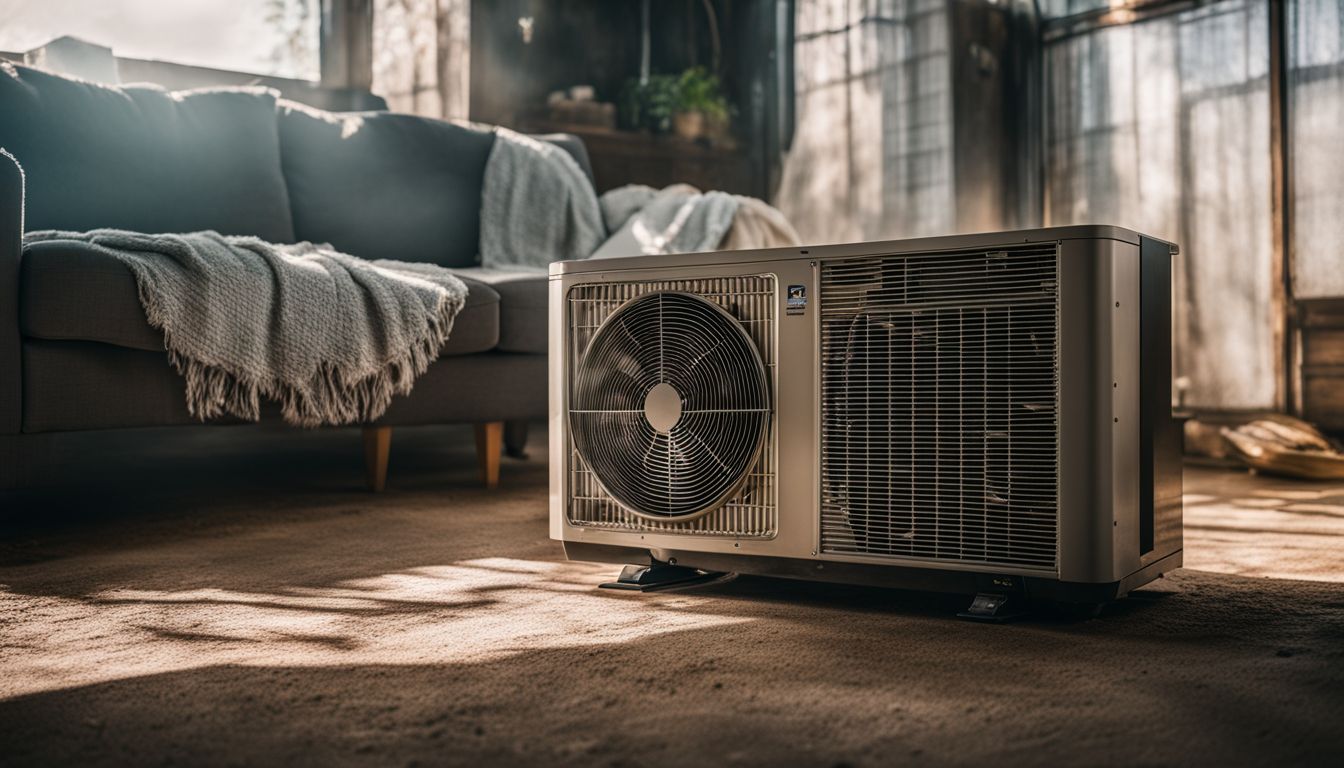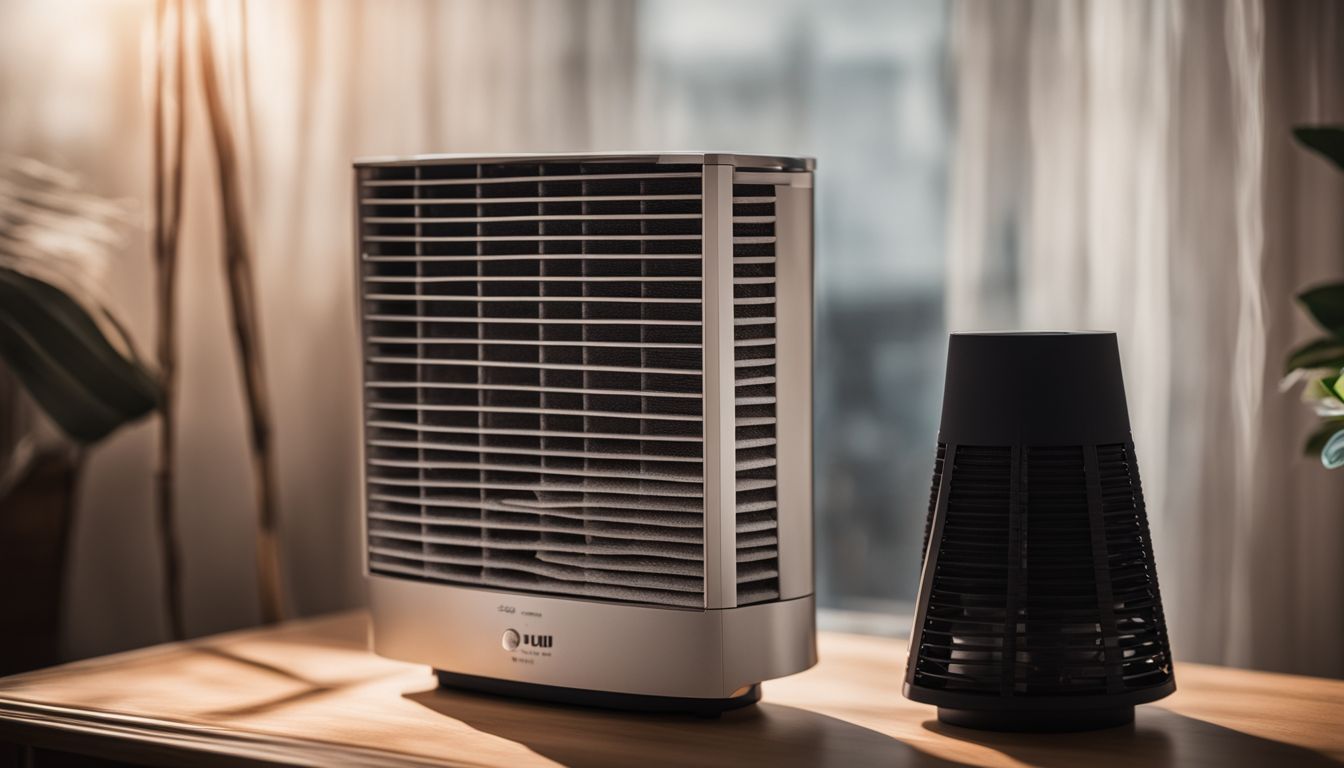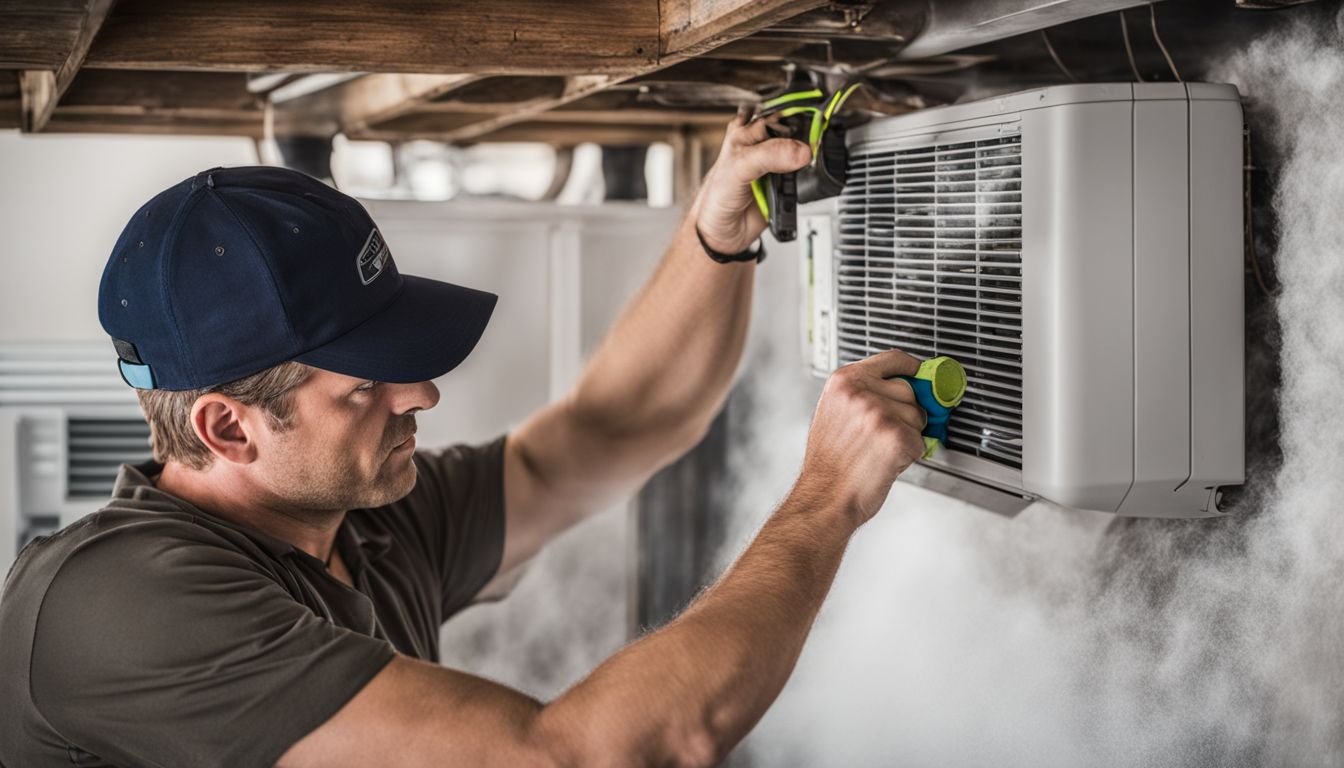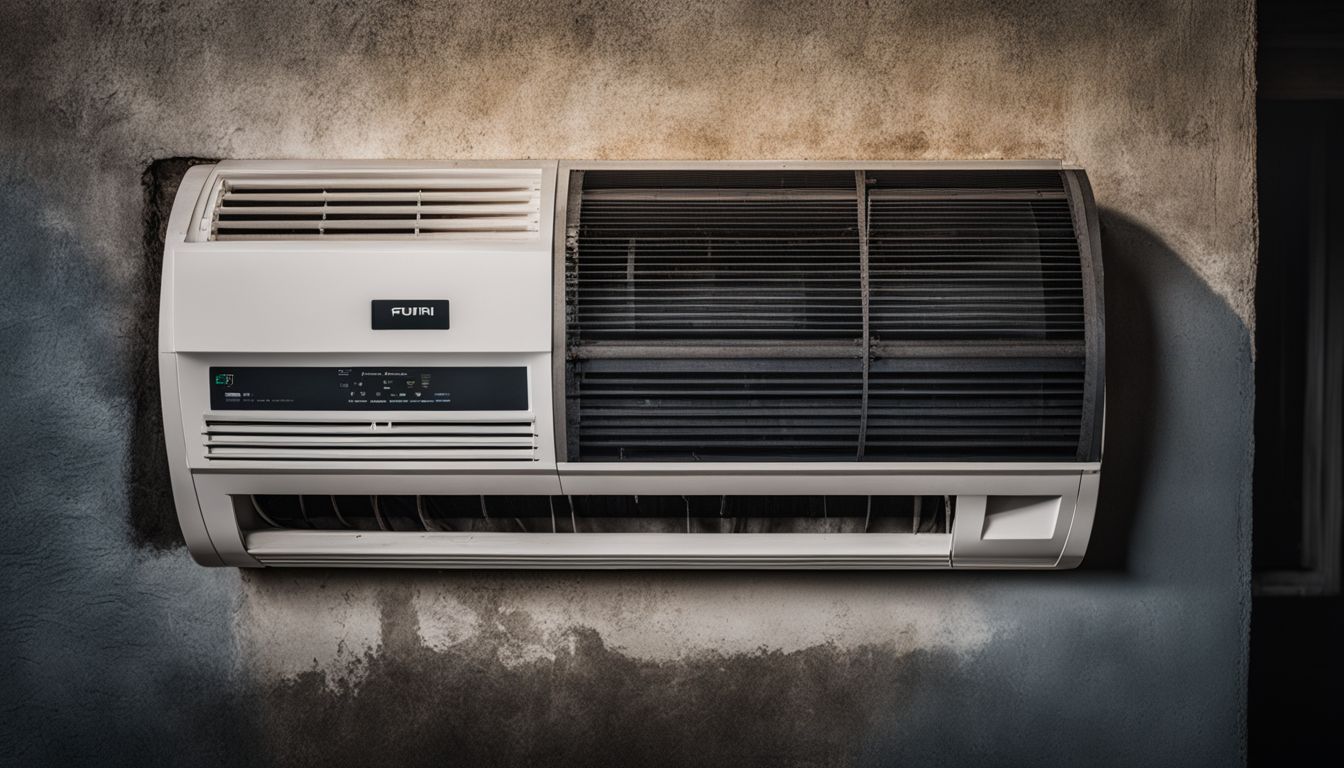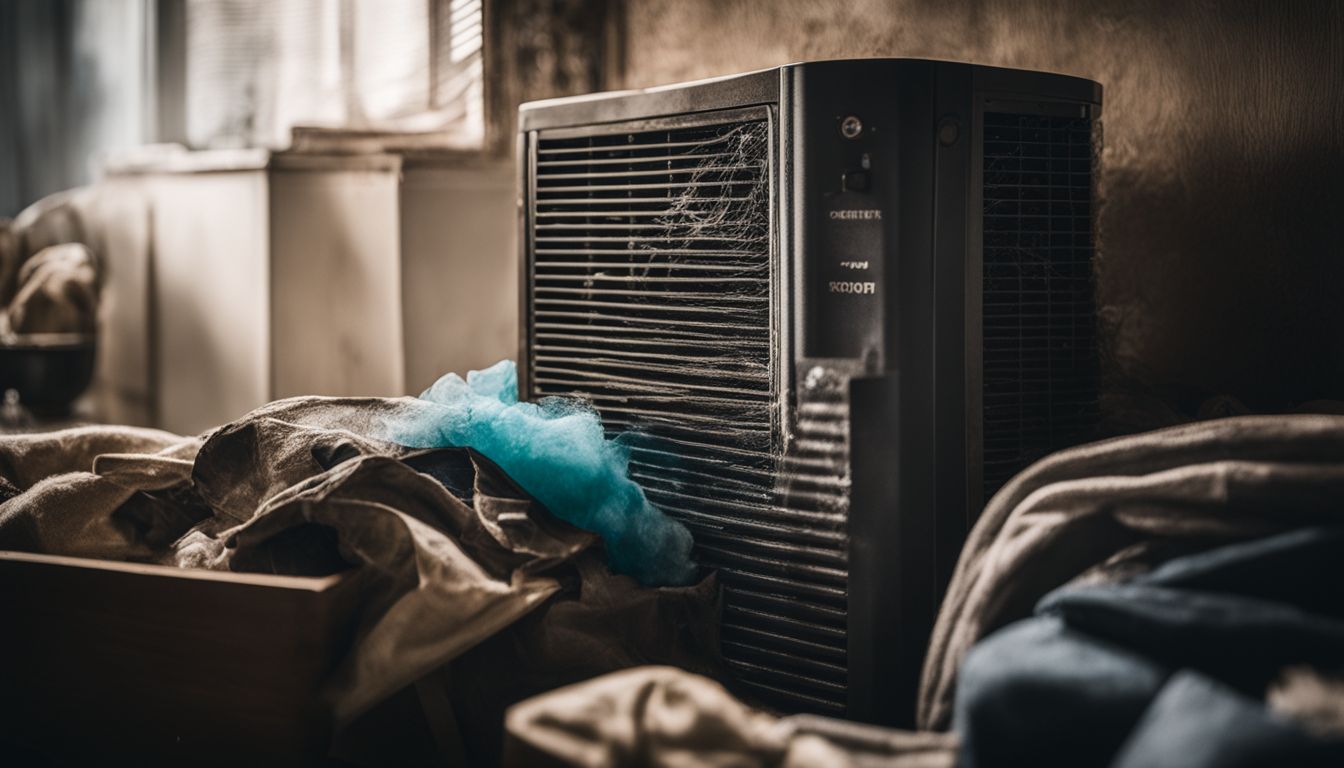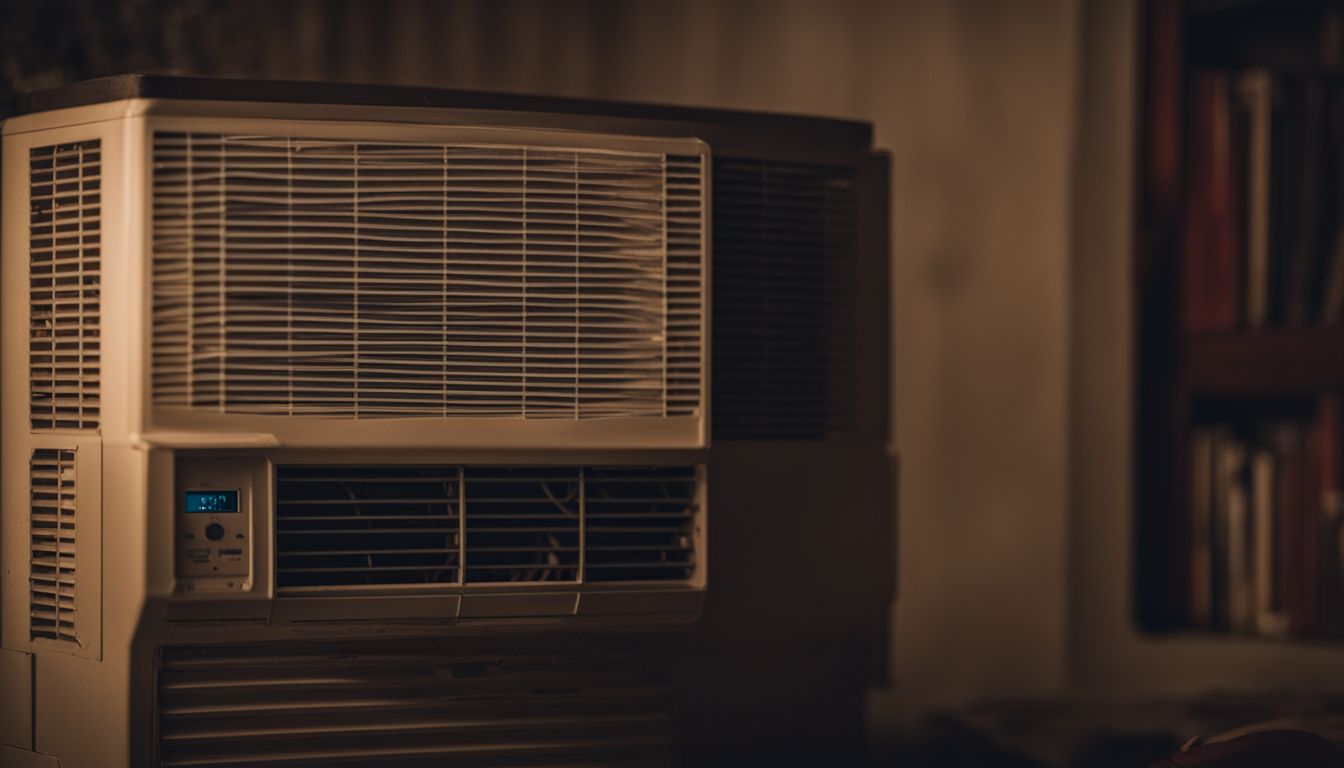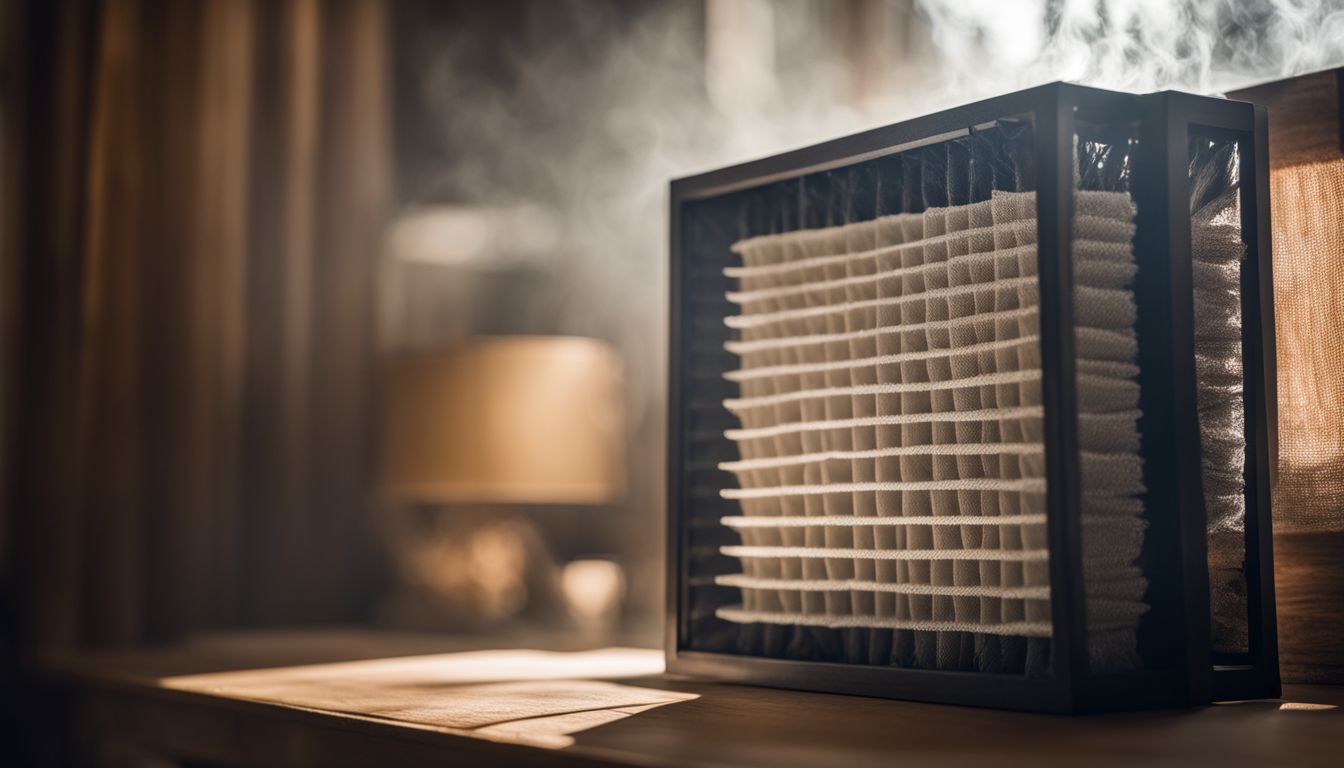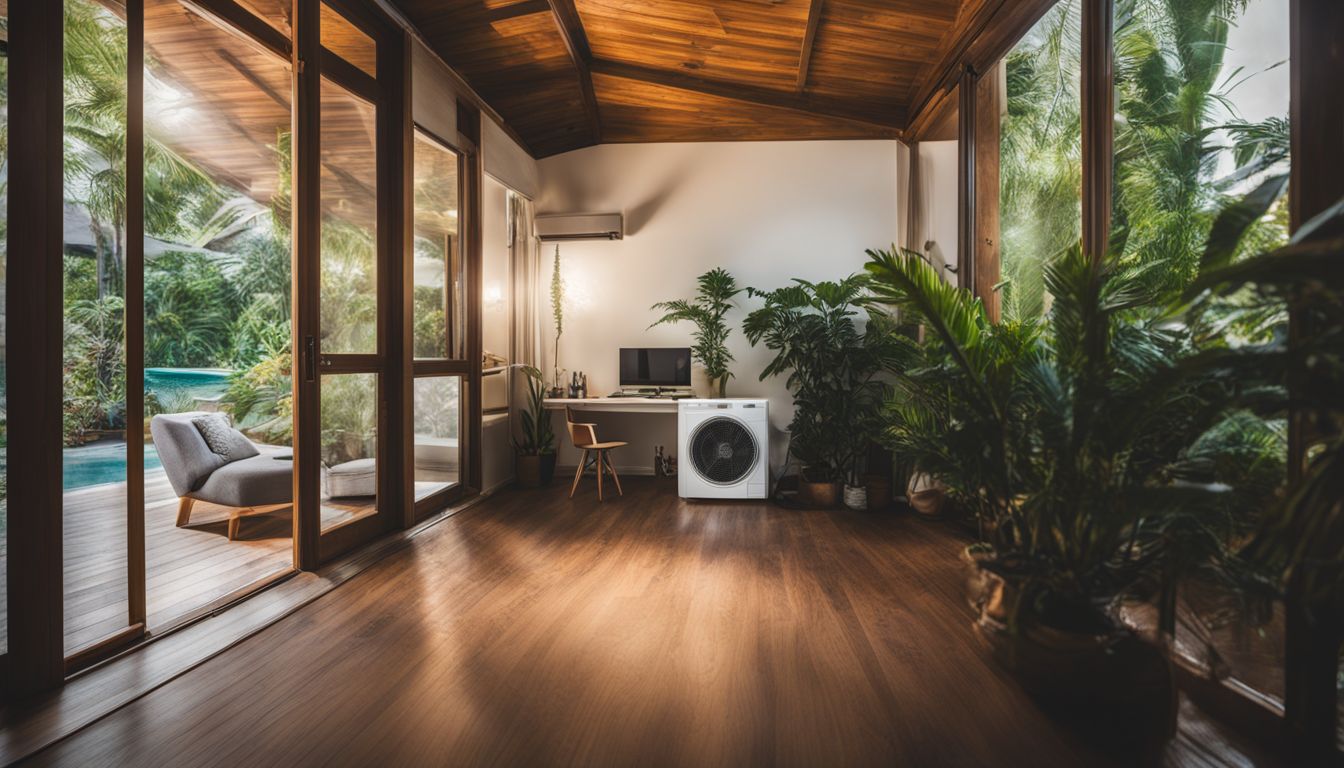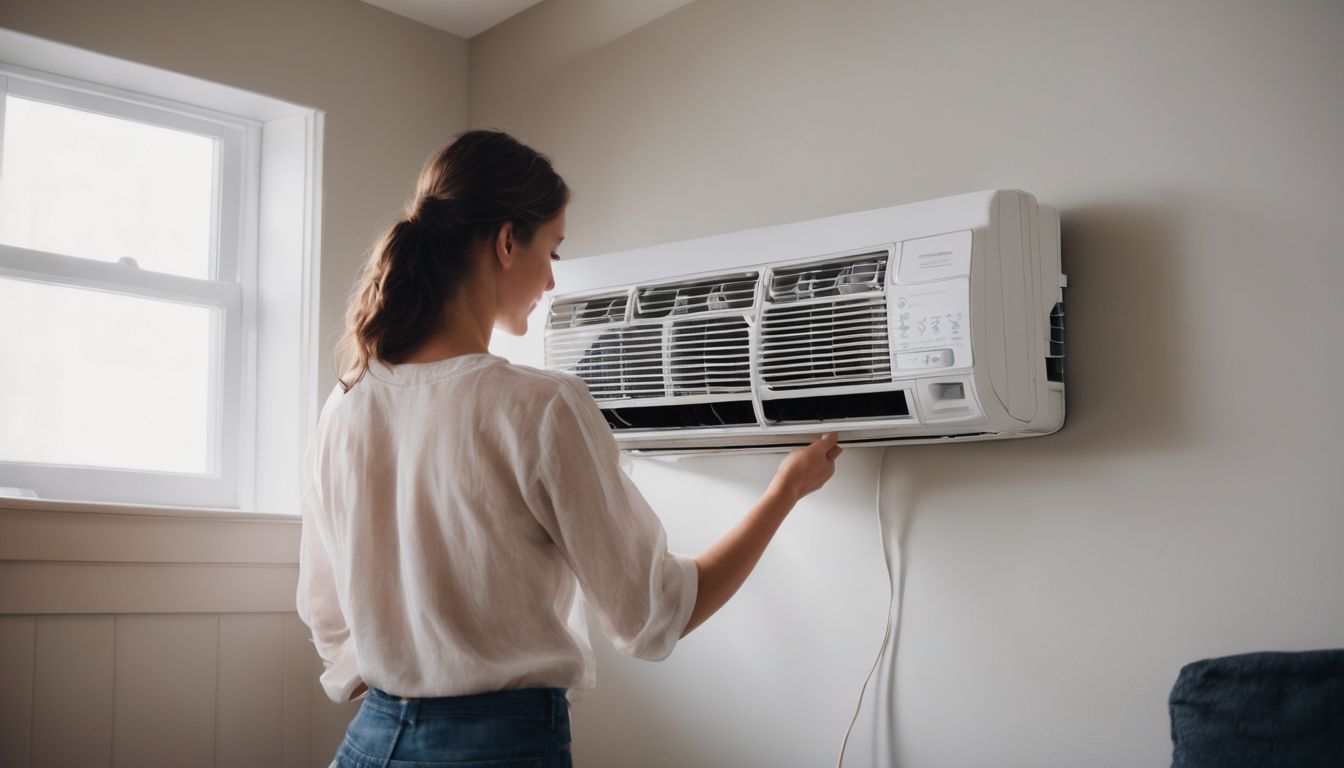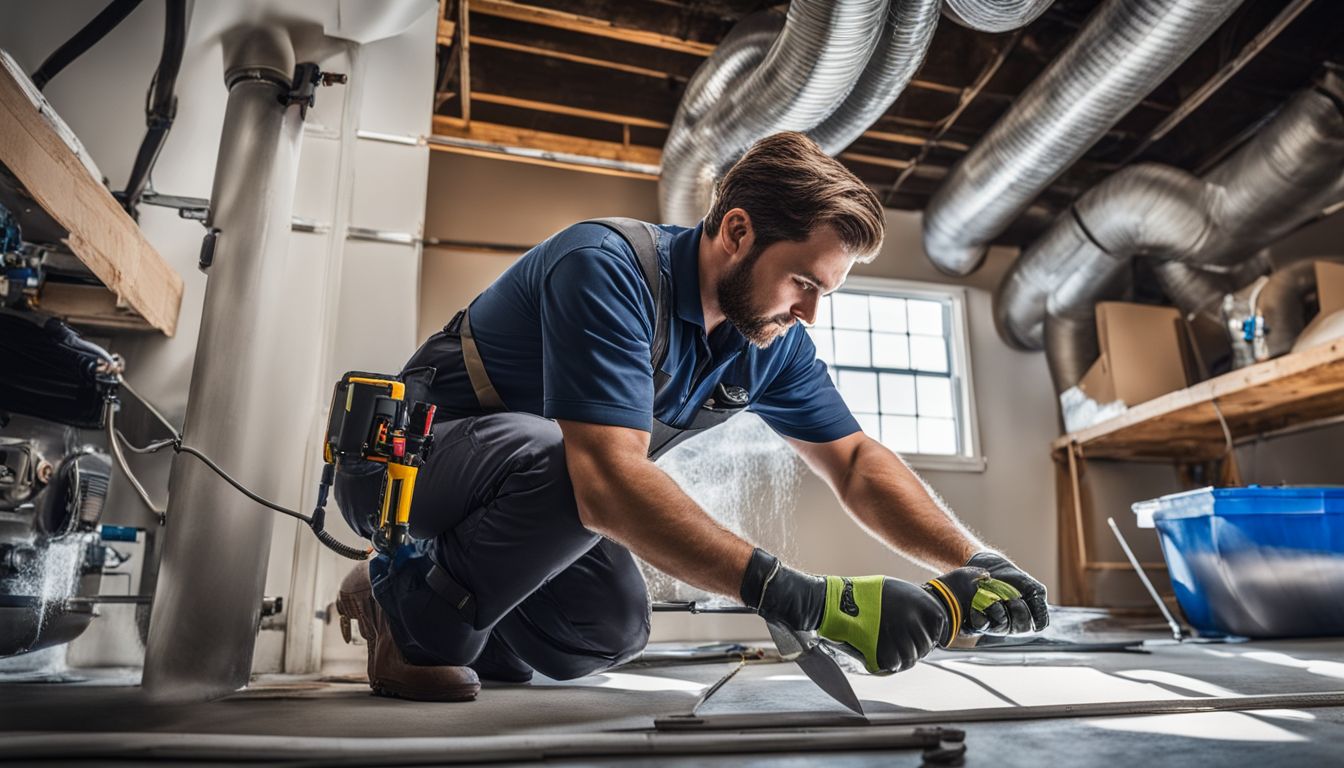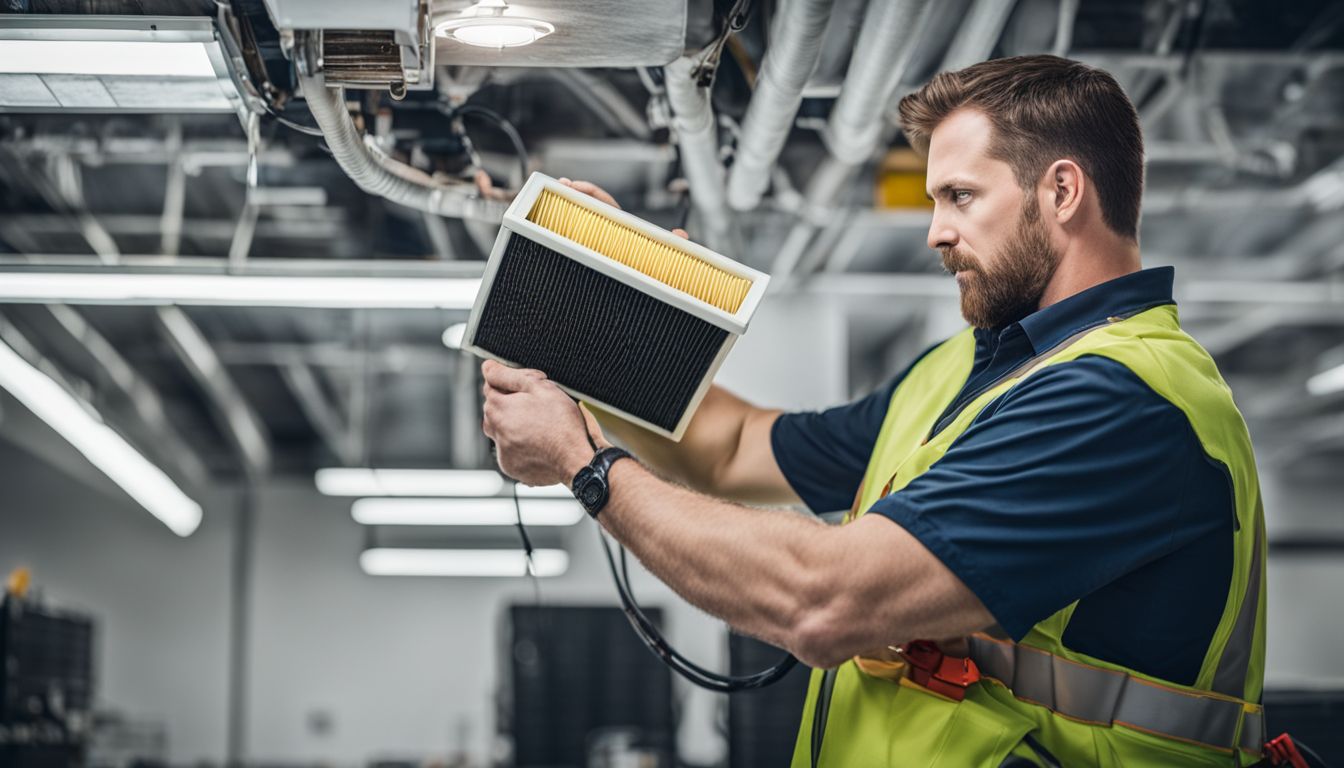Air conditioning units keep our homes cool, but often we find the filters get dirty too quickly. Rapid dirt buildup on AC filters is a common problem that can lead to trouble. When your thermostat fan runs non-stop in “ON” mode, it pulls in more dust and dirt.
Sometimes, unsealed gaps let unwanted things like pollen sneak into your system. Even mold can grow there, making things worse by adding extra gunk onto the filter. We also add to the mess by doing things indoors that create soot, such as burning candles or smoking.
If we don’t fix this issue fast, our air conditioners won’t work well. They’ll struggle to push air through all that dirt and won’t clean the indoor air properly either. Luckily, there are ways to stop filters from getting dirty so quickly.
Simple fixes include changing your filter often and ensuring no outside air gets through cracks in your unit.
By making these small changes you don’t just save money on repairs; you help make the air at home better for everyone – especially if someone has allergies or breathing problems.
Let’s start fixing this together! Keep reading to learn how you can keep your AC filter cleaner for longer.
Causes of Rapid AC Filter Dirt Buildup
The thermostat fan set to “ON” can cause rapid accumulation of dirt in the AC filter, as it constantly circulates air even when the cooling system is not running. Unsealed AC units can also let in debris and pollutants that contribute to dirty filters.
Thermostat Fan Set to “ON”
Having your thermostat fan constantly running can cause more dirt to pile up on your air filter. This happens because the fan keeps sucking in dust, pet hair, and other tiny particles all day long.
This not only makes filters dirty faster but also boosts energy use and may shorten the life of your heating and cooling system.
To avoid this problem, switch your thermostat fan setting from “ON” to “AUTO.” Doing so will make the fan run only when needed. Your AC will work smarter, not harder. It will save power and help your air conditioner last longer too.
Plus, you won’t have to change the filters as often – giving you cleaner air for more time with less effort.
Unsealed AC Unit
Gaps and cracks in your air conditioning unit make it easy for unwanted guests like dust and pollen to sneak into your home. These tiny invaders clog up the filters much faster than if your AC was sealed properly.
If you notice more dust around the house or allergies flaring up, an unsealed AC could be letting in mold spores and other irritants. That means your system has to work overtime just to keep the air clean.
Fixing these leaks is a big step towards cleaner indoor air. Seal off any openings where pollutants might enter to really boost your HVAC system’s performance. This will help maintain top-notch air quality without putting extra strain on the unit itself.
Plus, keeping those particles out protects everyone’s respiratory health—especially important if asthma or allergies are a concern in your household.
Presence of Mold
Mold in your AC system is bad news. It grows quickly and spreads spores that get caught in your air filters. This makes the filters dirty much faster than usual. Mold thrives in damp, dark places, and an air conditioning unit can provide the perfect environment for its growth.
If you spot signs of mold, like a musty smell or visible black or green spots near air ducts, act fast.
Cleaning up mold helps keep both your air clean and your energy bills lower. Tackle the issue to stop it from spreading through HVAC systems and causing health problems. Clean indoor air is crucial for healthy living; don’t let mold ruin it for you or your family.
After dealing with mold, watch out for high levels of soot as another cause of rapid filter dirt buildup.
High Levels of Soot
Burning candles, smoking indoors or using a fireplace adds to the soot in your home. Grilling without good ventilation does the same. These activities cause soot particles to float in the air.
The AC filter traps them, and this makes it dirty faster.
Your air conditioning system works harder when there’s more soot. The filter can’t clean the air as well if it’s clogged with soot. This means you might breathe in dirtier air. For healthier living, keep an eye on activities that create soot inside your home.
Impact of Rapid AC Filter Dirt Buildup
Rapid AC filter dirt buildup can lead to reduced airflow and poor indoor air quality, affecting the efficiency of your HVAC system and contributing to potential health issues. Discover effective solutions to prevent these problems by reading on!
Reduced Airflow
Filters clogged with dirt make it hard for air to pass through. Your AC has to work harder to push the air out. This strains the system and can lead to breakdowns. More energy is used, which means higher bills for you.
Clean filters help keep your AC running smoothly.
Dirt builds up fast when your thermostat fan stays on “ON.” It sucks in more dust, pet dander, and pollution. This blocks the filter quickly and cuts down on airflow. To stop this, make sure your fan setting is correct.
Regular filter checks can save you from these troubles.
Poor Indoor Air Quality
Dust and allergens easily clog a dirty air filter, causing indoor air pollution. This can lead to health problems like allergies and asthma. Without clean filters, your home’s air can become filled with unwanted particles such as mould spores and pollen.
Dirty air filters are a common culprit that reduce the quality of the air you breathe.
A blocked filter stops your AC from cleaning the air properly. Your family might start coughing or sneezing because of this poor air quality. Clean filters help keep the indoor environment healthy by trapping airborne pollutants before they spread through your rooms.
Next, let’s explore some effective solutions to prevent rapid AC filter dirt buildup.
Solutions to Prevent Rapid AC Filter Dirt Buildup
Regular AC filter changes, proper sealing of the AC unit, and implementing tips to boost aircon filter effectiveness are crucial in preventing rapid dirt buildup. So buckle up and discover how these solutions can help improve your indoor air quality and extend the lifespan of your AC system.
Regular AC Filter Changes
Changing your air conditioner filters regularly keeps the system working well. This helps save energy and keeps the air in your home cleaner.
- Check the filter’s minimum efficiency reporting value (MERV rating). Pick one that suits your needs for clean air and efficient energy use.
- Turn off the power to your HVAC system. This makes changing the filter safe.
- Open the air handler or furnace panel to get to the old filter. Slide it out gently.
- Look at the size printed on the edge of the old filter. Use this to buy a new one that fits right.
- Slide in the new filter. Make sure it faces the correct direction; arrows on the edge will guide you.
- Close up the panel securely. This stops unfiltered air from sneaking in.
- Write down when you changed it, so you know when it’s time for a new one again.
Proper AC Unit Sealing
To prevent rapid AC filter dirt buildup, proper sealing of the AC unit is crucial. Here’s how to do it:
- Seal off any gaps and leaks in the ductwork to prevent contaminants from entering the system.
- Use weather – stripping or caulking to seal around windows, doors, and other potential entry points for outside pollutants.
- Regularly inspect the AC unit for any signs of wear and tear, such as cracks or openings, and promptly seal them to maintain a clean airflow.
- Consider professional air duct sealing services to ensure a comprehensive and effective sealing process.
- Monitor humidity levels in the home and use dehumidifiers if necessary to prevent moisture accumulation that can contribute to mold growth.
Tips to Boost Your Aircon Filter’s Effectiveness

- Regularly replace the air filter to maintain optimal airflow and prevent poor indoor air quality.
- Keep the thermostat fan setting on ‘AUTO’ to ensure that air only passes through the filter when the system cools or heats, preventing clogging.
- Switching the fan mode from “ON” to “AUTO” reduces non – stop filtering, lowers energy consumption, and extends system lifespan.
- Check air filters monthly and replace them immediately if they appear dirty to maintain efficient filtration.
- Properly seal your AC unit to prevent the entry of dirt, soot, mold, and other pollutants into the system.
Conclusion
Prevent rapid AC filter dirt buildup by switching the thermostat fan mode to “AUTO” and sealing off any gaps in the AC unit. Regular maintenance, including cleaning with a mold-targeting solution, is crucial for maintaining efficient air quality.
Remember, clean filters are vital for healthier living conditions and efficient energy use! So, make it a habit to change your air filter regularly and choose higher quality options for cleaner air.
FAQs
1. Why do air filters in ACs get dirty quickly?
Rapid dirt accumulation in AC filters often results from high pollution levels and frequent usage, requiring regular filter maintenance for optimal air filtration.
2. How does proper air filter maintenance benefit my HVAC system?
Maintaining your air cleaner with routine checks ensures efficient operation of your heating, ventilation, and air conditioning system while controlling pollution.
3. Can a dirty AC filter affect the performance of H & H Heating & Air Conditioning units?
Yes, a clogged filter impedes airflow, leading to strain on the unit and potentially reduced effectiveness in temperature control offered by H & H Heating & Air Conditioning systems.
4. What steps can I take to prevent rapid dirt buildup on my AC filter?
To limit dirt buildup, engage in consistent maintenance practices that include inspecting and replacing or cleaning filters regularly for uninterrupted clean airflow.


